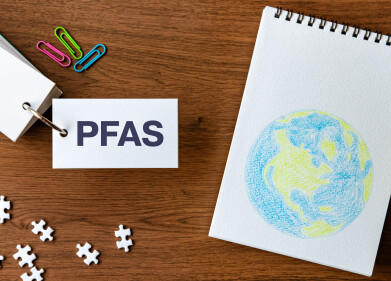HPLC, UHPLC
Is FPV Being Used Effectively for COVID-19? - Chromatography Explores
Jul 19 2020
Since an outbreak of severe acute respiratory syndrome coronavirus 2 (SARS-CoV-2) infection and the associated coronavirus disease 2019 (Covid-19) were reported in China in December 2019, over 14.5 million positive tests for Covid-19 have been reported leading to over 600,000 deaths by mid-July 2020. A significant number of patients developed acute respiratory distress syndrome due to the infection.
With no time to conduct gold-standard clinical trials on new drugs, doctors tested existing antiviral drugs. Several drugs such as interferon, ribavirin, favipiravir and lopinavir have previously been used on patients with SARS or MERS – coronaviruses that have previously caused widespread infections in human populations. A recent report in the journal Clinical and Translational Science highlights how although some of these drugs might be effective in treating Covid-19, we do not know enough about how what dose should be given or just what happens when they are given.
Favipiravir – an antiviral treatment in Japan
Favipiravir is one of several drugs that have been undergoing experimental trials on Covid-19 patients. The drug was developed by the US Department of Defense and a company called MediVector, Inc. where it underwent FDA Phase II and Phase III clinical trials. During the trials it was found to be safe in humans and worked against the influenza virus. The drug was shown to reduce the clearance of influenza virus by between 6 and 14 hours. Following the trials, the drug was approved for use in Japan to treat influenza strains that do not response to current antiviral drugs. But the drug has not been licensed for use in the USA and UK.
The drug is thought to work by inducing lethal RNA transversion mutations to make a nonviable viral phenotype. The drug is metabolized in the body into the active form - favipiravir-ribofuranosyl-5'-triphosphate - that fights viral infections by hypoxanthine guanine phosphoribosyltransferase, an enzyme found in the body. But trials have shown that favipiravir is not effective in human airway cells, this has cast some doubt on its effectiveness in influenza treatment.
Fighting the beast that is Covid-19
In Japan, the antiviral drug favipiravir has been used experimentally as a treatment for Covid-19. As the drug has not been licensed for use against Covid-19, its use is restricted and there is no specific strategy for treating Covid-19 patients with favipiravir. Researchers carried out a study on the pharmacokinetics of the drug in patients with Covid-19 who were in intensive care and on mechanical ventilation.
Researchers used serum samples taken from Covid-19 patients who had been treated with favipiravir and used HPLC to measure the serum concentrations of favipiravir. The use of HPLC to analyse samples is the topic of the article, Practical Considerations for High-Throughput Chiral Screening in HPLC and SFC with 3- and Sub-2-µm Particle-Packed Columns. The study revealed that the serum concentration of the drug was much lower than expected and that further studies are needed to determine the optimal strategy for treatment of Covid-19.
Events
Mar 18 2025 Beijing, China
Mar 25 2025 Paris, France
Mar 31 2025 Beijing, China
Apr 02 2025 Saigon, Vietnam
Apr 22 2025 Kintex, South Korea















